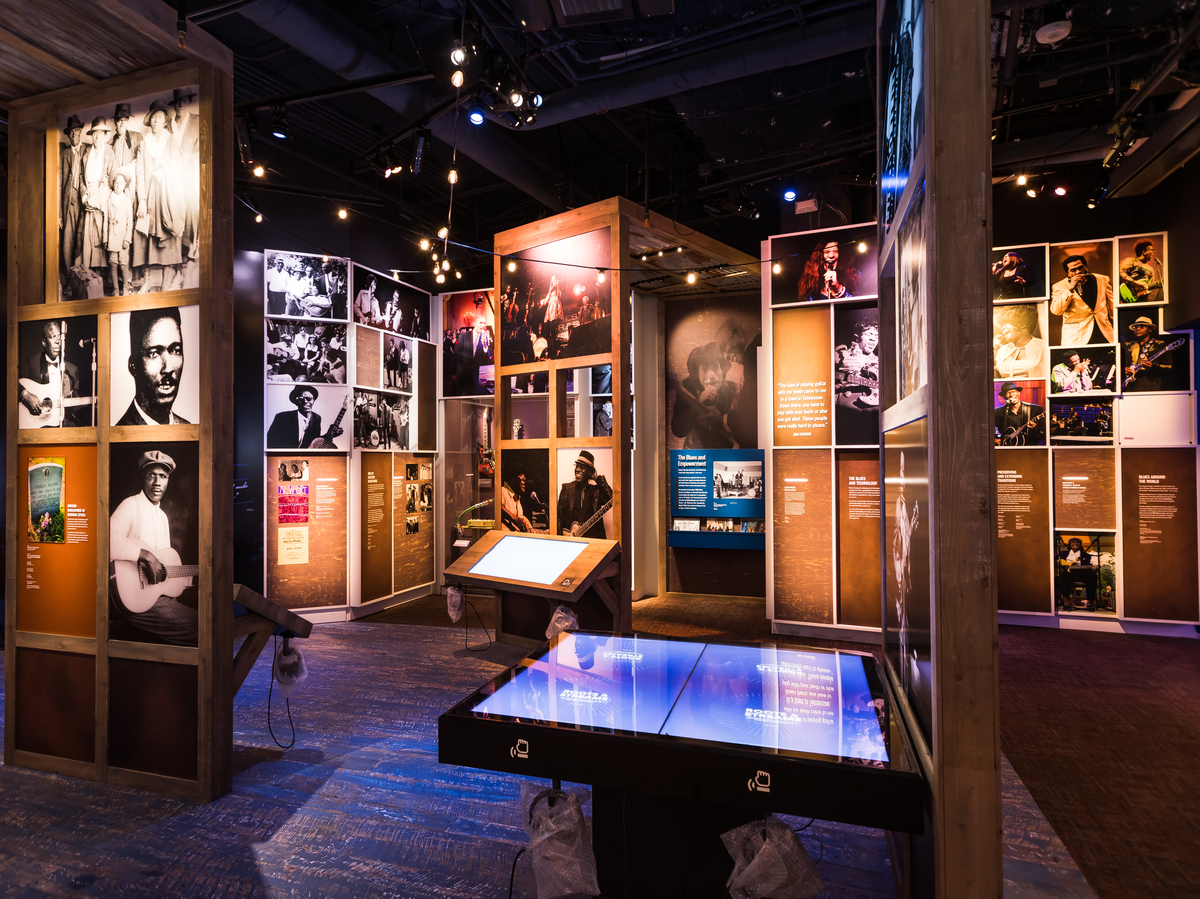A new museum in Nashville centers the artistry of Black musicians

Enlarge this image
The National Museum of African American Music, in Nashville.
Courtesy of NMAAM/353 Media Group
hide caption
toggle caption
Courtesy of NMAAM/353 Media Group

Enlarge this image
«Wade in the Water» exhibit at the National Museum of African American Music
Courtesy of NMAAM/353 Media Group
hide caption
toggle caption
Courtesy of NMAAM/353 Media Group

Enlarge this image
«Crossroads» Gallery at the National Museum of African American Music.
Courtesy of NMAAM/353 Media Group
hide caption
toggle caption
Courtesy of NMAAM/353 Media Group
«Crossroads» Gallery at the National Museum of African American Music.
Courtesy of NMAAM/353 Media Group
«Jimi Hendrix says, I had to learn how to play the guitar with my teeth cause in Nashville, if you don’t play good, they’ll kill you,» Hicks says, relating a quote displayed in the museum’s Crossroads gallery, which focuses on the Great Migration and blues music. «An artist of national and international acclaim, but really making the point of how critical Nashville was to the development of his music and his musical styles,» he adds.
Hendrix, like Little Richard and Etta James, cut their teeth on Jefferson Street. That was before the government ran interstates through the historically Black part of town. It’s an area where many thought the museum should end up, but after two decades of stops and starts it ended up downtown.
Nashville native and hip hop artist Brian Brown says it would’ve been nice for it to land on Jefferson Street. «But for the change that needs to be seen in this world, and for people to understand the type of impact we’ve made, put it right there, smack-dab inside of the country-wack honky-tonks, man,» he says.
Hicks says the location allows tourists and natives to learn about Black people’s impact on Nashville and the overall music industry. Plus, being in the center allows more foot traffic for the museum to thrive financially.
«While the museum is not in the historically Black community of the city, it is now in the center of the city,» Hicks says. «And hasn’t that always been the point: to center this African-American story in the narrative of what Nashville is?»













Комментарии 0